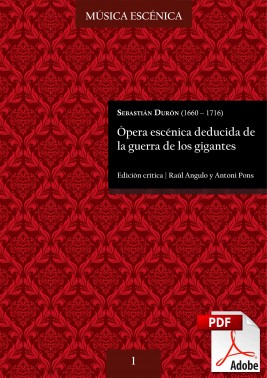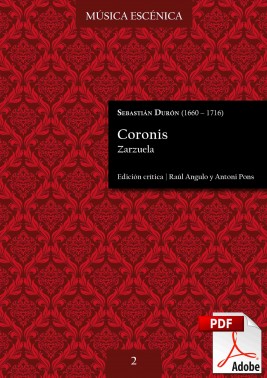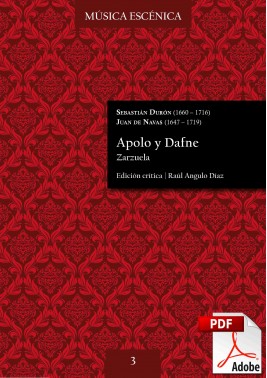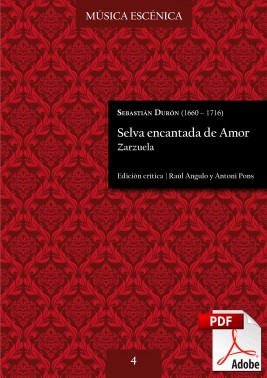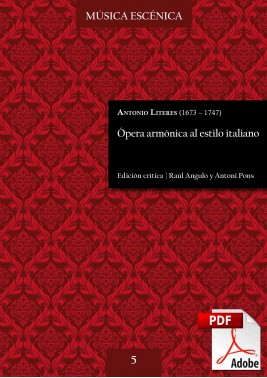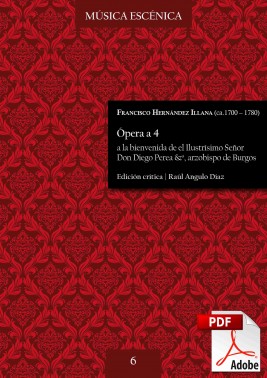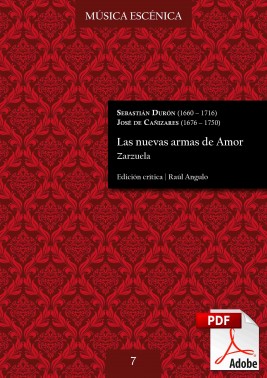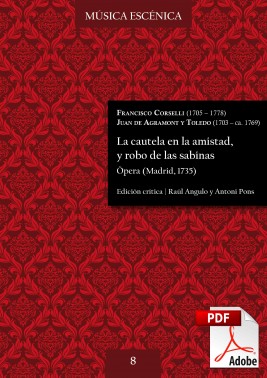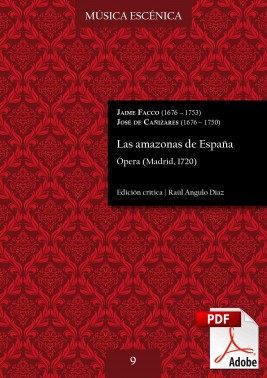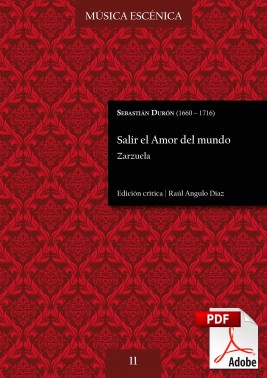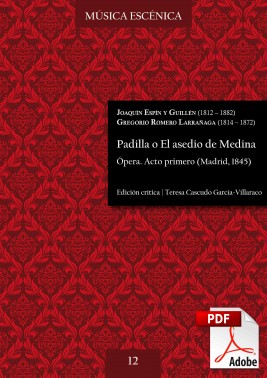-
 English
English
-
 Español
Español
Shopping Cart
No products
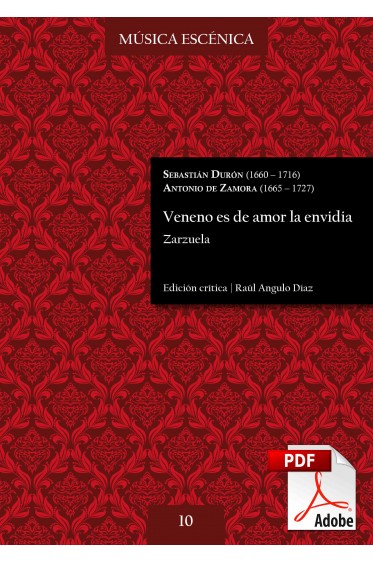
Durón | Veneno es de amor la envidia DIGITAL
Veneno es de amor la envidia. Zarzuela
Music: Sebastián Durón (1660-1716) - Libretto: Antonio de Zamora (1665-1727)
245 pages 2024 ISMN 979-0-805453-60-6 (PDF)
Also available in paperback edition
Instrumental parts available on demand.
|
In the present volume we continue with the edition of Sebastián Durón's stage music, publishing the partially sung zarzuela Veneno es de amor la envidia, with text by Antonio de Zamora. The work was performed with great success in the Corral de la Cruz in January 1711, a fact that has led to argue that the work was premiered on this date. However, as with other zarzuelas by Durón performed in the public theaters at the beginning of the second decade of the 18th century, its premiere must have been brought forward a few years. From the analysis of the music and its comparison with other works by Durón, we conclude that Veneno es de amor la envidia had to be composed after Hasta lo insensible adora, a zarzuela that we know was performed in September 1704, on the occasion of the birthday of Queen María Luisa Gabriela de Saboya, and around the same time as Apolo y Dafne and Coronis, zarzuelas with which it shares the same musical characteristics. We are going to propose, as a hypothesis, that Veneno es de amor la envidia was premiered in September 1705 in order to celebrate the birthday of Queen María Luisa, based on its plot, which presents a remarkable level of parallelism with that of Hasta lo insensible adora. Unlike other zarzuelas by Durón composed at the beginning of the 18th century, which stage the struggle between two Olympian gods to obtain the worship of a region, the zarzuelas Hasta lo insensible adora and Veneno es de amor la envidia focus on the destructive power of jealousy. The first type of argument is a clear metaphor for the War of Succession that pitted the Habsburgs against the Bourbons, a theme deemed appropriate for stage works aimed at the king, while the second type of argument is an admonition against uncontrolled amorous passions, a theme deemed suitable for stage works aimed at the queen. Instruments: 2 violins and bc. Choir: SSAT Roles:
|


